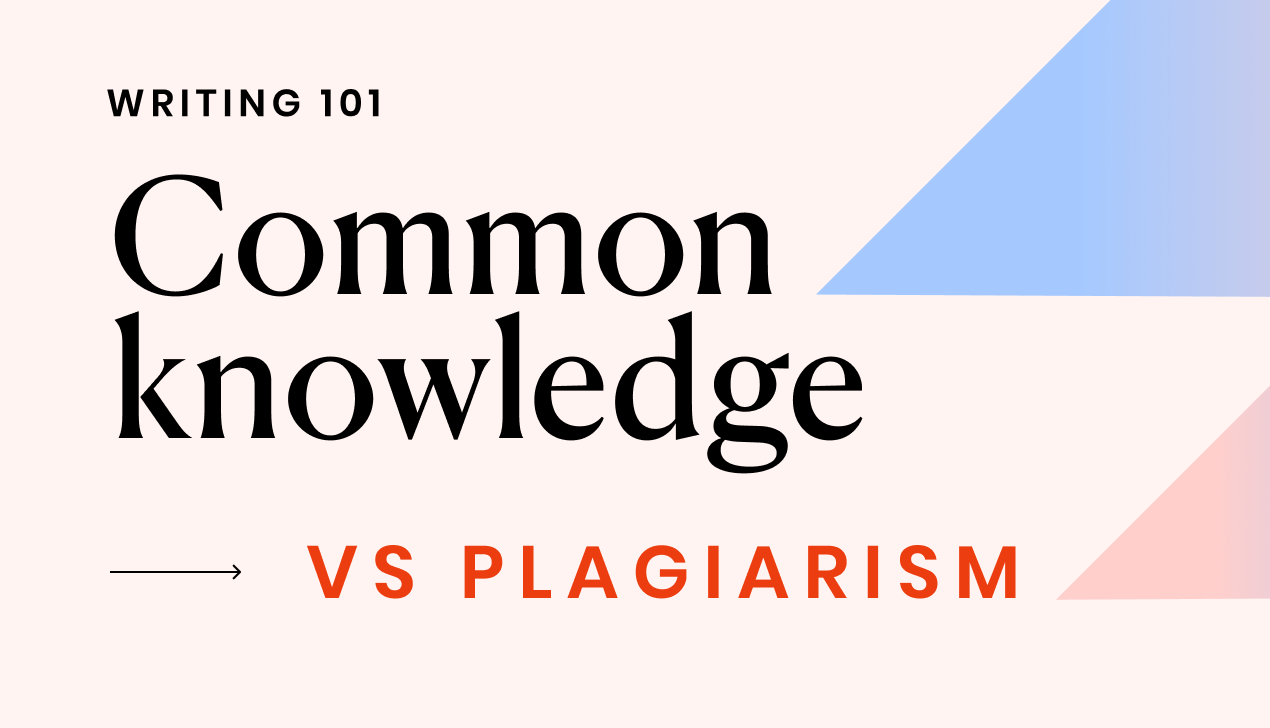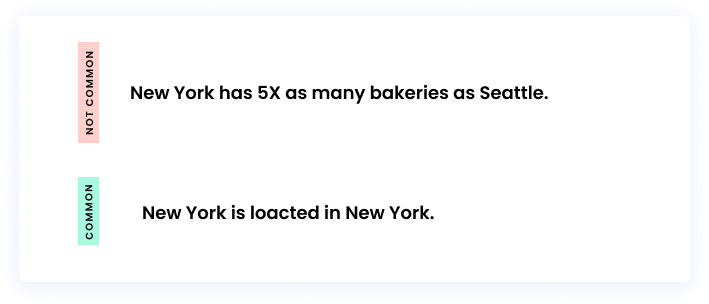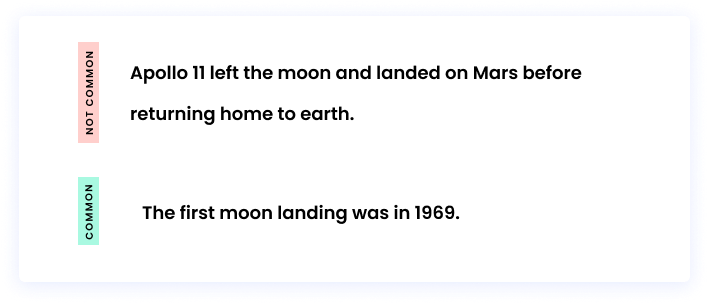Can Common Knowledge Be Used in Academic Writing
Writing 101


These are all examples of common knowledge. These are facts that the average adult should know.
Anytime you present someone else's text or ideas in your written work, you must give them credit. Without properly citing your source, it is plagiarism .
However, if the information included in your work is considered to be common knowledge, then you don't need to cite it.
Deciphering what is and isn't common knowledge can be a little tricky.
In this post, we'll cover what common knowledge is and how to recognize it in your writing, including:
What defines common knowledge?
The definition of common knowledge refers to any information that's well-known to the general public.
In academic writing, you may hear it defined as the information that the educated, average reader knows and accepts without needing a source reference.
This specific information is present across multiple sources, often without a clear origin point.
For example, the United States Declaration of Independence was signed in 1776.
Or, water freezes at 32 Degrees Fahrenheit.
There's no way to credit this information to a single source. It's become common knowledge.
On the other hand, you can't present data or statistics from studies as common knowledge. The same is true for direct quotes or original ideas that can be traced back to a single source. These all need attribution, meaning you will have to cite the sources of this type of data or content in your written work.
For example, a study that finds the tap water in Bangkok is eight times more polluted than the water in Zurich.
Since this is information you would need to look up, you would need to cite your source.
After all, presenting someone else's work or ideas as your own is a form of theft called plagiarism. Whether the plagiarism is intentional or not, it's still problematic. In some cases, the act is illegal and in violation of copyright law.
While properly citing your sources can help you avoid plagiarism accusations, you also don't want to get bogged down creating citations for a piece of information that's considered common knowledge. This isn't beneficial for the writer or the reader.
There are two primary types of common knowledge:

For example, John von Neumann invented Game Theory is common knowledge for philosophers and philosophy students. It is not considered common knowledge for the average adult with only a high school diploma.
How to recognize common knowledge
Plagiarism and common knowledge go hand in hand. You need to be aware of what constitutes common knowledge, so you have an understanding of when citations are and aren't required. Here are three questions to ask yourself to help you spot information that should be classified as common knowledge:
1. Who is the intended audience for this piece?
Is your work intended for the general public to read, or is it targeted toward a specific group such as professionals in a certain field? Keep in mind that just because a paper is published and accessible to everyone doesn't mean that's the audience of the piece. An article written for copy editors but published on a public website could safely assume that the main audience is editors, and they have a base understanding of editing practices. However, if the information was for a general audience instead of copy editors, then editing practices would no longer be common knowledge.
2. Would the audience be able to verify that the information is from different sources?
If your audience were to do some basic research, they should be able to find several sources that state the same thing. If that's true, then it's likely considered common knowledge.
3. Could someone dispute the information?
If the accuracy of the information in your piece can be questioned, then it might not be common knowledge.
For example, if you gave an estimate of the average salary of a freelance copywriter. The reader wouldn't be able to find that information readily from multiple sources. It's specific and requires a citation to include in your work.
What are examples of common knowledge?
To help you better understand what common knowledge is and isn't, here are a few fictional examples:

Why? It's reasonable to assume the general public knows NYC is in New York. However, you would need to provide evidence and a cited source to show the number of bakeries in NYC versus those located in Seattle. Even among bakers, this information would not be considered common knowledge.

Why? Though it's common knowledge for social media experts, anyone could be expected to know that Instagram is owned by Facebook. Even without knowing this before reading your work, the audience could do a Google search and find the information easily. It's just a fact that doesn't need to be attributed to any source. However, even social experts would need to see a source that backed up your claim about ROI.

Why? The moon landing is common knowledge, even if there are conspiracy theorists that claim it was staged. There's no need to prove it, and it wouldn't be possible to attribute the fact to a single source. However, saying Apollo 11 took a pit stop on another planet is a bold claim and would require a reputable source.
Remember, it's not necessary to cite your source for common knowledge information like in the examples stated above. However, you would need to include citations for specific details or quotes outside of common knowledge. Be sure to do your research and correctly cite the information based on the rules for your citation style of choice, whether that's APA, MLA, or Chicago style.
**
At the end of the day, if you aren't sure whether a source needs a citation or not, it's best to include it. Worst case scenario, you created a little extra work for yourself by citing the source. Best case scenario, you avoided plagiarism.

Can Common Knowledge Be Used in Academic Writing
Source: https://writer.com/blog/common-knowledge-plagiarism/